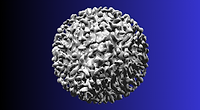FAO/WHO Expert Committee Publishes Safety Evaluation of Certain Food Additives

Image credit: StefleiFotografie via Pixabay
The 99th meeting of the Joint Food and Agriculture Organization of the United Nations (FAO)/World Health Organization (WHO) Expert Committee on Food Additives (JECFA) took place on June 11–20, 2024 in Geneva, Switzerland, during which the safety of certain food additives were evaluated.
More specifically, JECFA evaluated the safety of four food additives and four processing aids, and revised the specifications for 10 flavoring agents. Conclusions for additives that were successfully evaluated for toxicity and assessed for dietary exposure and specifications are as follows:
- Endo-1,4-β-xylanase from Bacillus subtilis expressed in Bacillus subtilis: Dietary exposure to this endo-1,4-β-xylanase enzyme preparation is not anticipated to pose a risk for allergenicity. JECFA identified a No Observable Adverse Effect Level (NOAEL) of 147.3 milligrams of total organic solids per kilogram of bodyweight (mg TOS/kg bw) per day, the highest dose tested, in a 13-week study in rats. Comparison of this NOAEL with the estimated dietary exposure of 0.008 mg TOS/kg bw per day gives a margin of exposure (MOE) of more than 18,000. Based on this MOE and the lack of concern for genotoxicity, the Committee established an acceptable daily intake (ADI) of “not specified.”
- Endo-1,4-β-xylanase from Rasamsonia emersonii expressed in Aspergillus niger: JECFA concluded that the risk of allergenicity upon dietary exposure to this endo-1,4-β-xylanase is low. The Committee identified a NOAEL of 1,850 mg TOS/kg bw per day, the highest dose tested in the 13-week study in rats. Comparison of this NOAEL with the highest estimated dietary exposure of 0.380 mg TOS/kg bw per day in toddlers gave an MOE of more than 4,800. On the basis of this MOE and lack of concern about genotoxicity, the Committee established an ADI of “not specified.”
- Glucosidase from Aspergillus niger expressed in Trichoderma reesei exhibiting α-glucosidase and transglucosidase activity: JECFA concluded that dietary exposure to this glucosidase is not anticipated to pose a risk for allergenicity. The committee also had no concerns about potential genotoxicity of the enzyme concentrate. JECFA identified a NOAEL of 74.8 mg TOS/kg bw per day, the highest dose tested, for the enzyme concentrate in the 18-week study in rats. Comparison of this NOAEL with the estimated dietary exposure of 0.443 mg TOS/kg bw per day gave an MOE of 169.
- Natamycin: Based on the available data, JECFA concluded that there is no concern for the induction of antimicrobial resistance (AMR) and that the risk of natamycin having a disrupting effect on the microbiome of the human gastrointestinal tract is low. The committee re-affirmed the ADI of 0–0.3 mg/kg bw for natamycin established in the 20th meeting of JECFA. The committee further noted that the NOAELs in the new 13-week and 1-year studies in rats (42 and 26 mg/kg bw per day, respectively), with the application of a 100-fold uncertainty factor, support the current ADI of 0–0.3 mg/kg bw.
- Nisin A: Based on the available data, JECFA concluded that there is no concern for the induction of AMR and that the risk of nisin having a disrupting effect on the microbiome of the human gastrointestinal tract is low. The new toxicological information available for this evaluation did not provide any reason to revise the ADI for nisin. JECFA reaffirmed the ADI of 0–2 mg/kg bw for nisin established at its 77th meeting, but noted that the critical toxicological studies were conducted with nisin A; therefore, the ADI only applies to nisin A.
- Polyglycerol esters of fatty acids: At its 17th meeting, JECFA established an ADI of 0–25 mg/kg bw for polyglycerol esters of fatty acids, based on a long-term study in rats in which there were no effects at 2,500 mg/kg bw, the highest dose tested. In the absence of any new toxicological information, the present committee re-affirmed the ADI of 0–25 mg/kg bw.
JECFA expressed its disappointment that certain food additives prioritized for reevaluation by the Codex Committee on Food Additives (CCFA) had no new data required to conduct reevaluation, and requested that CCFA place greater emphasis on ensuring the availability of new data before a food additive is prioritized for JECFA reevaluation. Additionally, the committee noted that, when considering enzymes as processing aids, the submissions from the sponsor did not always conform to the requirements. Sponsors are reminded of the requirement to provide a statement detailing the enzyme activity.
Looking for a reprint of this article?
From high-res PDFs to custom plaques, order your copy today!






